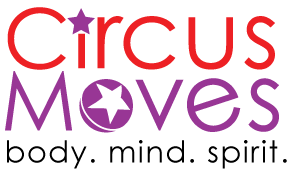SEL Cheat Sheet
Youth Program Staff Training

What it is: A staff training that delivers a 1-2-3 PUNCH!
This 2-hour experiential workshop that begins with 20-30 minute interactive group conversation followed by 60-90 minutes of hands-on movement activities that demonstrate and reinforces concepts from the discussion.
This unique 3-in-1 format:
-
Provides opportunities for participants with different learning styles to embody information about social-emotional learning (SEL) in a way that will promote positive interactions with kids in their programs;
-
Builds a cooperative environment for staff team-building and camaraderie;
-
Introduces easy-to-remember games and activities for staff to bring back to their programs.

We empower your staff with the confidence to make it the BEST. PROGRAM. EVER!
-
Introduces five core elements of social-emotional learning.
-
Teaches six elements of successful youth development programming using an easy-to-remember acronym.
-
Demonstrates how to create activities to nurture and support both individuals and groups
-
Focuses on how to understand, address, and manage some of the behaviors that school-aged children are exhibiting as a result of the sustained emotional stress of the COVID-19 pandemic and the modern world, and empowers staff to adapt and cope in the face of challenging behaviors.
-
Provides youth program staff additional tools to cope not only with the participant behaviors, but also their own responses to those behaviors.


How it's done:
The training begins with a 20-30 minute interactive conversation which first provokes early childhood memories and empathy, then briefly addresses the question "What is SEL?." Next we introduce the magic: an acronym to remember the critical elements that are present in an activity where positive youth-development is happening. After that we get up and play whole bunch of simple games and activities accompanied by a narrative designed to integrate everything we just talked about. BONUS: all the games are designed to use traditional camp equipment and are simple and memorable enough that youth program staff can take them back to their groups. (Plus they're listed on the Cheat Sheet handout!)
Each participant receives an actual physical cheat sheet that includes the five elements of SEL, and the acronym. On the reverse side are tools to understand the feelings being communicated by youth behaviors, and a short list of the games and activities from the training. Directors and group leaders receive a laminated version of the Cheat Sheet to support acquired skills throughout the summer.
Learning Outcomes:
After being in this workshop, participants will be able to:
-
list six characteristics of program activities which promote a positive social-emotional learning environment.
-
demonstrate practical knowledge of at least three games/activities to use in their youth programs
-
identify at least five stressors that might be the root cause for negative behavior in children. (i.e. hungry, tired, pain, trouble at home, social anxiety, constipation, low self-esteem, etc.)

History
Most people who work in youth programming and education aren’t child development specialists or psychologists and the concept of “social-emotional learning” can seem complicated- even though it is woven into of everything we do every day! While everyone agrees that SEL is an important focus, it is challenging to deliver digestible practical knowledge that youth program staff can easily transfer to their programs. Taking an online course is rarely effective, especially for people who like to move! And so this course was created.
In April 2021, the CT Recreation & Parks Association reached out to me (Cynthia Rauschert) with a request to create a program for their first in-person quarterly training since the COVID-19 lockdown began in March 2020. They asked for a program that addresses social-emotional learning and purposeful play, two things that are inherent in circus arts education programming. The training was a big hit, and several of the program directors invited me to repeat the program with their youth program staff. Soon after I was invited to present the training at the 2021 CRPA Annual Conference and 2022 Camp College professional development day and have since been invited to present at several state conferences (including NY, NJ, & MN), and to youth program staff all over CT.
In 2022, in response to the mental health crisis facing children, youth, and adults as a result of the sustained emotional stress of the COVID-19 pandemic, the training material was expanded to include a focus on how negative behaviors in children communicate a deficit in the environment and not in the child, and to give youth program staff additional tools to cope not only with youth behaviors, but also their own responses to those behaviors.





